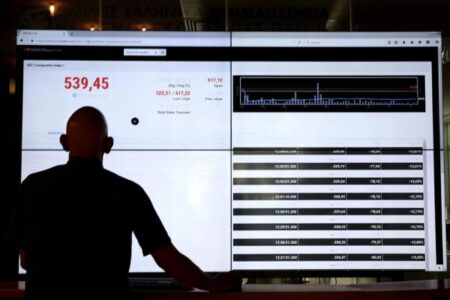Investing.com — Serco Group (LON:) on Friday said it was unsuccessful in securing the renewal of its longstanding immigration detention contract with the Australian government, sending its share down over 10%.
The contract, valued at £165 million annually, has generated around £18 million, or 6% of Serco’s EBITA, and has been an integral component of the company’s regional portfolio since 2009. ‘
This contract, set to conclude by December 2024, will begin winding down in the 2025 fiscal year, resulting in a gradual revenue decline as the company transitions its responsibilities to a new provider over a maximum period of 180 days.
“We calculate a potential c£15m (5% group) hit to EBITA in FY25 and potentially similar level in FY26, dependent on offsets,” said analysts at Jefferies in a note.
Losing this Australian contract deals a big blow, not only in terms of revenue but also in terms of margin stability.
With an estimated EBITA margin of 10.9% on the contract, this loss removes a relatively high-margin income source for Serco, compared to its group average margin of around 5%.
“No feedback on reason for loss as yet. Contract is both sensitive and difficult to operate, and so Serco would unlikely be bidding cheaply, which always suggests risk of incumbent being undercut on price,” said Jefferies.
Serco has likely faced strong competition from new bidders willing to accept lower margins to secure this high-profile contract.
For a company like Serco, which has managed the challenging operational demands of the contract for over a decade, such aggressive pricing by competitors underscores the financial risks inherent to large, publicly funded contracts.
Adding to the anticipated financial pressures, Serco must also contend with rising labor costs in the UK.
Changes to National Insurance contributions, set to take effect from April 2025, are expected to increase direct labor costs by approximately £20 million annually, roughly 7% of Serco’s total EBITA.
“We understand pass-though is not written into customer contracts, but combination of customer negotiation and broader inflation pass-through over time may partially offset,” Jefferies said.
Serco is exploring potential mitigations, such as customer negotiations and indexing prices to broader inflationary trends, though these adjustments are unlikely to fully offset the added costs in the near term.
“We bring our 25/26E EBITA forecasts down by 8%/9% as a result. Whilst this is unfortunate, we believe the company remains in excellent shape, with now limited rebid risk, the likelihood of a much smoother organic growth trajectory and with a strong balance sheet that provides optionality,” said analysts at RBC Capital Markets in a note.
Read the full article here















